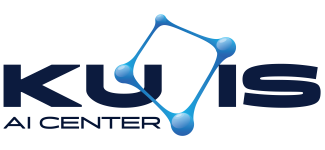
Cansu Korkmaz, PhD student in Electrical and Electronics Engineering
Can you briefly introduce yourself and share your background in AI research?
I’m a dedicated and enthusiastic individual with a deep passion for artificial intelligence research for image super-resolution. I am a final-year PhD student in Electrical and Electronics Engineering with a focus on deep learning and computer vision. Throughout my academic journey, I’ve had the opportunity to work on various AI projects, including developing algorithms for image classification, object detection and predictive modeling. I’ve also engaged in research internships where I’ve contributed to advancing state-of-the-art techniques in AI. My background in AI research has equipped me with a strong foundation in both theoretical concepts and practical implementation, and I’m eager to continue exploring and contributing to this rapidly evolving image processing field.
What initially sparked your interest in the field of AI? Was there a particular moment or experience that inspired you to pursue this area of study?
My interest in the field of AI was initially sparked by a combination of factors, but one particular moment stands out. During my undergraduate studies, I had the opportunity to take a course on image and video processing from Prof. Tekalp. It was in this course that I was introduced to the concept of teaching computers to learn from data and make predictions for the next video frame without being explicitly defined what would contain the next scene. Witnessing the power and potential of deep learning algorithms to solve complex problems across various domains fascinated me. This experience inspired me to delve deeper into the field of AI for image processing, leading me to pursue further studies and research in this exciting area.
Could you tell us about your current research or thesis topic in AI? What motivated you to choose this specific area?
Currently, my research interests lie in image processing and computer vision, with a focus on deep learning techniques. Specifically, I specialize in image super-resolution, leveraging generative models to enhance image quality and detail.
Image super-resolution aims to enhance the resolution and quality of low-resolution images, a crucial task in various applications such as medical imaging, surveillance, and satellite imagery. Generative models, especially those based on deep learning, have shown promising results in this area by learning complex mappings from low-resolution to high-resolution images.
What motivated me to choose this specific area is the potential impact it holds in real-world applications. High-quality images are essential for various tasks in computer vision, and super-resolution techniques play a vital role in improving the visual quality and interpretability of images in diverse domains. Additionally, the challenge of designing efficient and effective generative models to address this problem captivates my interest, driving me to explore novel approaches and methodologies.
What excites you the most about the potential applications of AI in the real world? Are there any specific domains or industries where you believe AI can make a significant impact?
The potential applications of AI in the real world are incredibly exciting to me, as they have the power to revolutionize various domains and industries, making a significant impact on society as a whole. What excites me the most is the prospect of AI being used to solve complex problems and address pressing challenges in fields such as healthcare, transportation, finance, and education. In healthcare, for example, AI has the potential to improve diagnostic accuracy, personalize treatment plans, and streamline administrative processes, ultimately leading to better patient outcomes and more efficient healthcare delivery. In transportation, AI-driven technologies can enhance safety, optimize traffic flow, and facilitate the development of autonomous vehicles, revolutionizing the way we travel. Similarly, in finance, AI can be leveraged for fraud detection, risk assessment, and algorithmic trading, leading to more secure and efficient financial systems. The possibilities are endless, and I am eager to see how AI continues to transform and improve various aspects of our daily lives.
Can you share a memorable experience or achievement from your AI research journey so far? What did you learn from that experience?
One of the most memorable achievements from my AI research journey so far was the moment our paper got accepted to CVPR 2024. It was an incredible feeling of accomplishment and validation of our hard work and dedication to advancing the field of computer vision. What made this achievement particularly memorable was the realization of the impact our research could have on the broader scientific community. Being accepted to present our work at such a prestigious conference not only provided recognition for our efforts but also opened doors for collaboration and further exploration of our ideas.
From this experience, I learned the importance of perseverance in research. Despite facing challenges along the way, we remained committed to our goals and worked together as a team to overcome obstacles and produce meaningful results. Additionally, the acceptance of our paper reinforced the value of pushing boundaries and pursuing innovative approaches in super-resolution research.
How do you balance your academic workload, personal life, and the demands of your AI research? Do you have any strategies or tips that have helped you maintain a healthy work-life balance?
Balancing academic workload, personal life, and the demands of AI research can indeed be challenging. Personally, I’ve found that incorporating activities like skiing, yoga, weight workouts, or DIY projects into my routine has been incredibly helpful for managing stress and maintaining a healthy work-life balance.One strategy that has worked well for me is prioritizing tasks and setting realistic goals. By breaking down larger projects into smaller, manageable tasks, I’m able to make progress without feeling overwhelmed. Also, I try to establish boundaries around my work hours and allocate specific time for relaxation and leisure activities. Additionally, I’ve learned the importance of seeking support from friends, family, and colleagues when needed. Whether it’s discussing challenges with a mentor or simply venting to a friend, having a strong support network can provide valuable perspective and encouragement during stressful times. Overall, finding a balance between academic responsibilities and personal life is an ongoing process, and I strongly believe it’s okay to prioritize self-care and well-being along the way.
A book and movie that you recommend (they don’t have to be related to ai)
“Dune” would be my choice for a movie recommendation because of its intricate world-building and compelling narrative. For a book recommendation, I would suggest “Seker Portakali” (The Orange Tree) by Jose Mauro de Vasconcelos which offers a rich and immersive storytelling experience, much like the depth and complexity found in “Dune.” I believe both works delve into profound themes and explore the human experience in captivating ways, making them highly engaging and thought-provoking.
